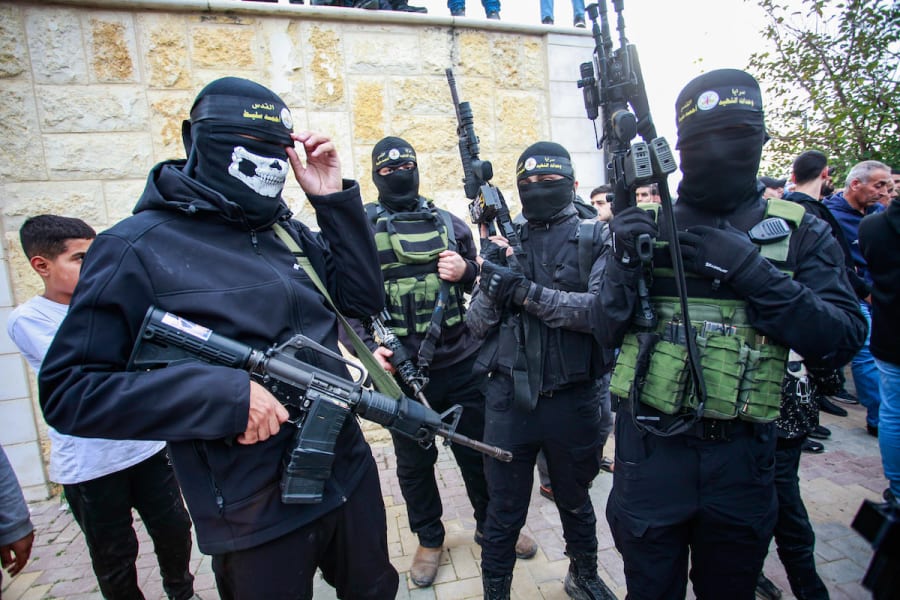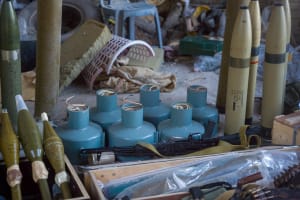The real reason Palestinians don’t want to improve their situation

The headline which read, “Sinai is the Solution,” caught my eye because it offers a practical, feasible and great solution as a future home for Palestinians – just far enough away from Israel to provide a proper buffer zone but also an area said to be 165 times larger than the Gaza Strip – a land mass which would create an enormous improvement in the quality of life for Palestinians.
Detailing how the Sinai Peninsula is the exact opposite of the Gaza Strip and one of the most suitable places on earth to provide the people of Gaza with hope and a peaceful future, Joel Roskin – geologist and geographer at Bar Ilan University – in his Dec. 25 Jerusalem Post article writes that “it is one of the emptiest places in the Mediterranean region, spanning 60,000 km.”
Roskin recalls how, despite “generous economic support mainly from America, Europe, Qatar and the UN Gazans have completely failed to generate a productive Palestinian-administered entity, a creative solution is needed ASAP.”
However, it is clear to him and to the vast majority of informed, intelligent people who realize that something else is preventing Palestinians from moving forward and creating a good life for themselves. The issue is that so many of them have an obsession with a toxic and destructive ideology that seeks to bring about an end to the Jewish state that it has undermined their own efforts to build a productive society.
Just think about that for a moment. Among the Palestinian people, there are those whose intense hatred toward the Jewish people has actually been the catalyst for preferring to suffer poverty, be governed by terrorists and watch their people be brutalized, manipulated and even killed, if necessary, all in the name of ridding the Middle East of its Jewish presence. That is some powerful hatred!
It is that kind of radical fanaticism, which has been noticed by other neighboring Arab lands such as Jordan and Egypt, who could have so easily welcomed these people who have chosen to live in unbearably cramped quarters that greatly contribute to their misery and discomfort but who, nonetheless, have turned a blind eye to their suffering, including Jordan’s Queen Rania, who herself is a Palestinian. Not even she will go to bat for her own kind.
We mustn’t forget that the Sinai, being described as a viable alternative to create a more successful option for Palestinians, is Egyptian territory, and they, too, are unwilling to lend a helping hand. In fact, as a result of arms smuggling to Hamas, through the Sinai, Roskin says that it was “the Egyptians who expelled the local population by destroying the residential infrastructure” probably as a result of seeing the great damage they were causing to an otherwise pristine area.
Egypt has invested much in this area by way of “freshwater canals, agriculture, and well-paved highways. So why would they want to offer this treasure-trove of resources and nurtured land to a people governed by terrorists whose last priority is a high quality of life?
Even though Roskin points out the many enhancements that could benefit the Palestinians, who are in desperate need of a new home, considering the devastating effects of war, one which was initiated by their own terrorist government, it’s unlikely that Egypt would be willing to sponsor such an effort given their fears of what could result from turning over this paradise to a savage and barbaric group with no regard for humanity, let alone the earth’s natural resources.
Roskin, in his optimism, suggests a Chinese-led initiative, supported by local labor and helped along by the international community, as being the path to a creative and prosperous solution for Palestinians. In fact, he believes that even Israel would be all too happy to join such a project, contributing from its wealth of high-tech and agricultural know-how to help rebuild their lives.
So, he calls upon Egypt to “bravely choose to change its rigid, old-fashioned policy of keeping Palestinian-Gazans in constant distress.” In Roskin’s mind, only good can come out of such a joint effort, and while he is correct, the one thing that holds them back is those among them with the toxic ideology that fuels enough hatred to perpetuate their ongoing suffering. It’s really a masochistic choice when you think about it.
How then, is it possible to make them see that this metastasizing cancer, festering inside, is only eating them alive in its wake? Because of the extremists in their midst, they are the big losers who are missing out on the blessing of life, the joys of family, the pride of accomplishments, the pleasure of good times and so much more. Will any righteous among them, assuming that there are, help them to finally wake up from the stupor of ignorance, brainwashing and wanton exploitation that others have employed to their ruin?
It is no wonder that their own people feel that they don’t want to take the risk to help them, at their own expense, because, as Solomon the wise wrote in the Book of Proverbs: “Can a man scoop fire into his lap without his clothes being burned? Can a man walk on hot coals without his feet being scorched? (Prov. 6:27-28). The obvious answer is no.
Until extreme Palestinians, with fanatical ideology exchange their hatred for love, their warring for peace and their own self-loathing for self-esteem, along with the need to respect themselves, who will want to warmly welcome them into their home as an honored guest? This is their dilemma, but the only one they can resolve.
Sadly, the only solution for this kind of untamed and unbridled hatred of others is an encounter with the loving, merciful and just God who is able to melt even the coldest of hearts with His boundless goodness – an antidote for all the ills which keep us bound to our own evil nature and tendencies.
But, until there is a moment of reckoning, within the deepest recesses of the hearts of extreme Palestinians, they will only continue to be a curse to themselves and to others who may have pity on them but remain unable to help them escape their own demise.
It's really sad when you think about it because the solution is so simple and so available – not just in terms of a new home for them, but as it relates to their becoming productive and contributing members of society and the human race as a whole. This intrinsic connection to their well-being, as a result of abandoning their self-inflicted evil determination to bring doom upon others, is key to their survival.
The moment they abandon that demonic stronghold which has kept them bound up in misery will be the moment they finally are able to open the door that leads to abundant blessing, accompanied by life lived to the fullest because only then will they be welcomed into the brotherhood of man.

A former Jerusalem elementary and middle-school principal who made Aliyah in 1993 and became a member of Kibbutz Reim but now lives in the center of the country with her husband. She is the author of Mistake-Proof Parenting, based on the principles from the book of Proverbs - available on Amazon.













